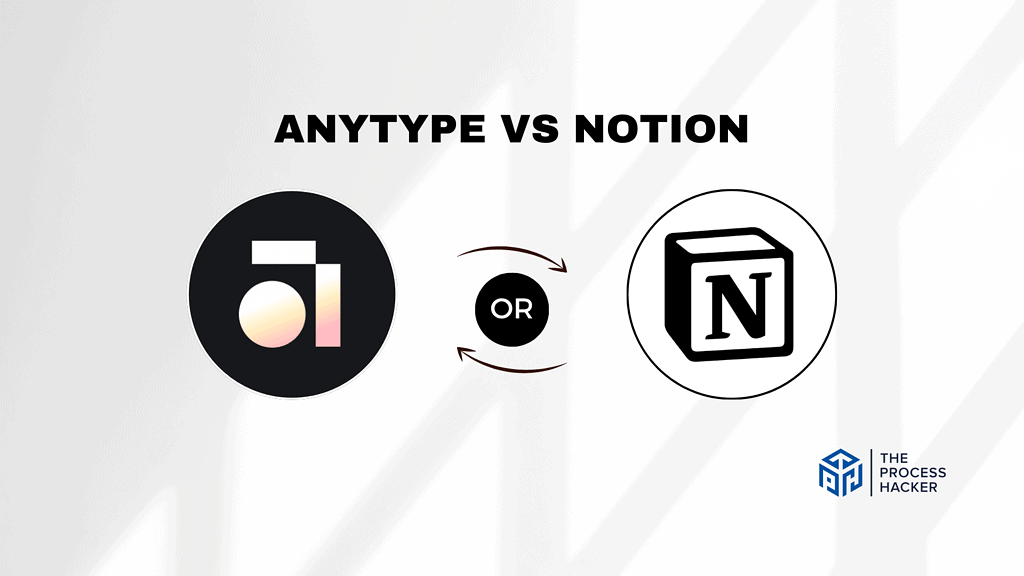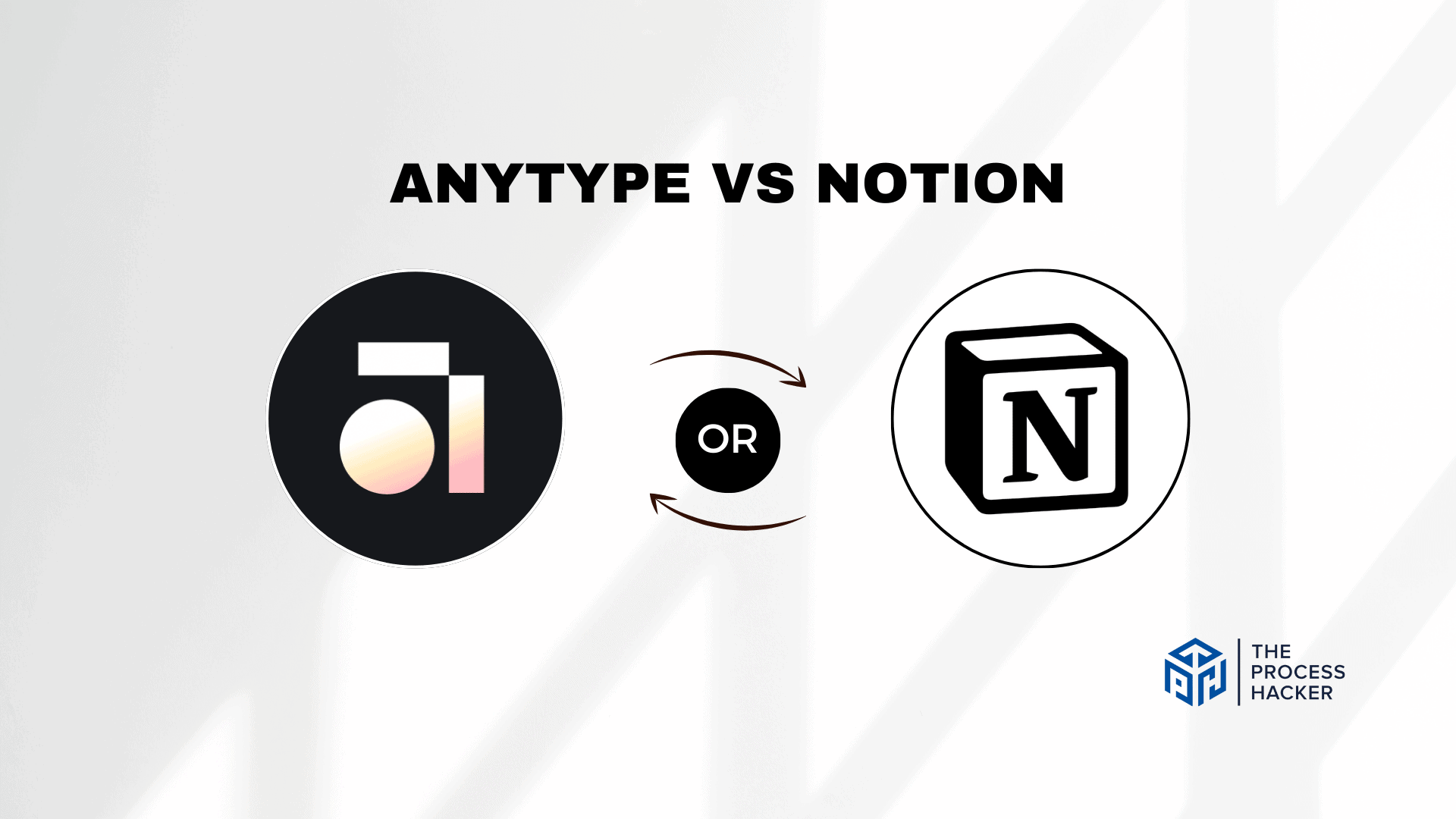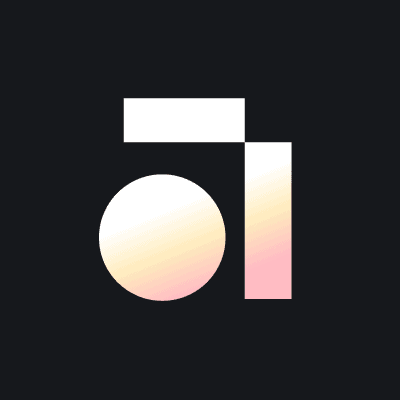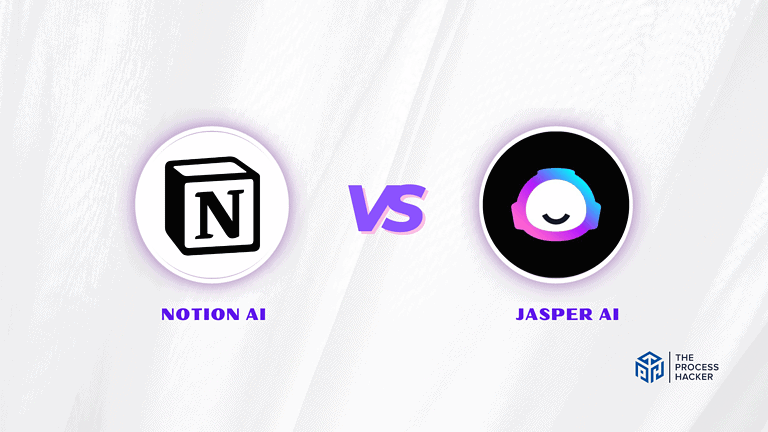Anytype vs Notion: Which Personal Knowledge Management Tool is Better?
In today’s digital world, we are constantly bombarded with information from various sources, whether work-related documents, personal notes, or even social media updates.
With the rise of remote work and increasing reliance on technology, staying organized and managing our personal knowledge has become more important than ever before.
This is where personal knowledge management tools come in – offering a one-stop solution for capturing, organizing, and retrieving all types of information. The two leading contenders in this space are Anytype and Notion – both powerful platforms that promise to revolutionize the way we manage our personal knowledge.
If you purchase through our partner links, we get paid for the referral at no additional cost to you! For more information, visit my disclosure page.
In this blog post, we will dive deep into the features offered by these two tools and compare them to determine which one comes out as the better choice for your personal needs.
Let’s answer the question everyone has in mind: Is Anytype the best Notion alternative out there, or is Notion still the best among the rest? Let’s get into the best web app for the job, shall we?
Brief Overview: Anytype vs Notion
First, I’ll give you a quick overview of Anytype and Notion:
Anytype
Anytype operates as a unique, object-oriented personal knowledge base, allowing you to create, organize, and connect all types of data. It’s designed to be a versatile and private space for your thoughts, projects, and data, leveraging encryption to secure your information.
Key Selling Points:
- Decentralized data storage for enhanced privacy and data security
- Highly customizable interface and data structuring options
- Offline access and backup nodes ensure you can use it without an internet connection
- Encrypted data with a focus on the user’s data ownership
- Open-source platform that encourages community contributions and transparency
Notion
Notion is a popular all-in-one software workspace that combines AI note-taking tools, task management, databases, and more into a single platform. It’s known for its clean, drag-and-drop interface that makes organizing various types of content straightforward and effective.
Key Selling Points:
- Versatile platform combining notes, tasks, wikis, markdown files, and databases
- User-friendly and self-hosting drag-and-drop interface
- Extensive integration options with other apps and services
- Collaborative features for team projects and shared workspaces
- Regular updates and a robust community support system
Quick Verdict: Anytype vs Notion
Anytype gives you the peace of mind that your information is yours alone. Its innovative approach to data handling, where everything is stored locally on your device, makes it an excellent choice for those concerned about online data breaches.
The flexibility to create unique objects and relationships allows for a tailored knowledge management experience. This makes Anytype not just a tool but a personal data companion that respects your privacy and caters to your organizational style.
With its sleek interface, AI SEO tools, and drag-and-drop functionality, Notion simplifies the process of organizing different types of content creation. It’s an ideal solution for teams and individuals who thrive on collaboration and integration, offering extensive options to connect with other apps and platforms.
If you value a centralized system where everything from daily planning to execution can happen seamlessly, Notion is your best bet. Whether planning business trips, organizing personal projects like home renovations, managing study schedules, tracking fitness goals, or maintaining a journal, Notion provides the flexibility and functionality to handle AI marketing all in one place. Its integrated approach ensures that all your planning and execution needs are met efficiently.
Product Overview: Anytype vs Notion

What is it?
Anytype is an innovative personal knowledge management tool that prioritizes your data privacy and security. It uses a decentralized system to store information directly on your devices, offering a unique approach to managing your personal or professional data.
Notion is an integrated workspace that combines note-taking, timeboxing, task management, databases, and more, allowing you to organize and access various forms of content from a single platform. It’s designed to streamline your workflow and enhance productivity.
Who is it for?
Anytype is perfect for those who value privacy and want complete control over their data. It appeals to individuals seeking a secure, customizable, and independent platform to manage their knowledge and information without relying on cloud services.
Notion is ideal for individuals and teams seeking a versatile and comprehensive tool to centralize their work. It benefits those who collaborate often, need seamless integration with other apps, and prefer an all-in-one solution for their organizational needs. It is one of the best AI tools for college students.
What makes it special?
Anytype stands out with its decentralized approach, ensuring that you are the sole owner of your data. This aspect, combined with its customizability and offline mode access, positions Anytype as a unique player in the field of personal knowledge management, offering a secure alternative to cloud-based options.
Notion differentiates itself with its all-encompassing nature, combining a wide array of functionalities into a single, cohesive platform. Its intuitive design, robust collaboration features, and extensive integration capabilities make it a standout choice for comprehensive project management and organization.
What does it do?
Anytype allows you to create, organize, and store various types of business process data, including notes, tasks, and databases, all within your control. It supports a customizable interface where you can define the structure and relationships of your information, tailoring the system to your specific needs.
Notion provides a unified workspace for your notes, tasks, databases, and more, facilitating efficient organization and access. It offers a drag-and-drop interface, collaborative spaces, and integration with numerous other tools, enabling a streamlined and interconnected working environment.
Quick Comparison: Anytype vs Notion
| Key Features | Anytype | Notion |
|---|---|---|
| #1) Pricing | Tie | Tie |
| #2) Free Plan | Tie | Tie |
| #3) Design & Functionality | Winner | |
| #4) Customizable Templates | Winner | |
| #5) Integrated Databases | Winner | |
| #6) Linking Between Pages | Winner | |
| #7) Collaboration Tools | Winner | |
| #8) Task Management | Winner | |
| #9) Extensive Integration | Winner | |
| #10) AI & Automation | Winner | |
| Overall | Winner |
Feature Comparison: Anytype vs Notion
Let’s compare the features of these personal knowledge management tools so you can make the right decision for you and your business.
#1) Pricing
Anytype offers a unique approach to pricing, where you start for free and can use it extensively without any charges. If you decide to expand your usage, the Supporter Plan at $90 per year provides additional benefits, catering especially to those who wish to engage more deeply with the platform.
In contrast, Notion has a straightforward pricing model starting at $10 per month, making it accessible for individual users or small teams. For larger organizations or those needing advanced features, Notion scales up with Business and Enterprise Plans, addressing a broader range of professional requirements.
When comparing the two, your preference may hinge on your specific needs. If you’re looking for a cost-effective solution with the option to support the platform voluntarily, Anytype stands out. However, for those requiring structured plans with clear tiers and dedicated support, Notion could be the more suitable choice.
Verdict: For pricing, it’s a toss-up! If you’re on a tight budget, Anytype’s free plan is excellent. Notion’s paid plans might be the better choice if you need advanced functionality.
#2) Free Plan
Anytype’s free plan provides a solid foundation for building your knowledge base. You get unlimited objects (notes, tasks, etc.), the ability to collaborate with others and offline access.
Notion’s free plan is also generous. You can create unlimited pages and blocks (lines of text, images, etc.) and share your workspace with up to five guests.
When it comes down to it, Anytype shines for those prioritizing privacy and a decentralized approach, offering impressive capabilities at no cost. Notion, however, stands out for collaboration and versatility, making it incredibly appealing if working in a team is your daily bread.
Verdict: For the free plan, it’s a tie, reflecting what you value most in a personal knowledge management tool.
#3) Design & Functionality
Anytype offers a unique approach to design and functionality with its object-oriented system, enabling a highly customizable and flexible environment for managing your information. The sleek and intuitive interface allows for a seamless experience as you organize and access your data.
On the other hand, Notion provides a more structured yet equally versatile environment, with its block-based system enabling you to easily create, modify, and arrange content automation. Its clean and straightforward design ensures that you can quickly find your way around, making information management both effective and enjoyable.
When it comes to design and functionality, both Anytype and Notion excel in their own ways. Anytype stands out with its innovative object-oriented approach, offering unparalleled customization.
Notion shines with its user-friendly, block-based interface, ideal for those who appreciate simplicity and efficiency. Thus, determining which is better largely depends on your preference for customization versus structured organization.
Verdict: For a clean, focused approach to design, Anytype gets the point.
#4) Customizable Templates
Anytype offers a selection of templates that help you jumpstart your projects, whether you’re managing personal tasks, notes, or complex databases. The platform emphasizes creativity and allows for a high degree of customization, ensuring you can tailor each template to fit your needs.
Notion is renowned for its vast library of customizable templates, covering everything from simple to-do lists to comprehensive AI project management projects and boards. This extensive collection not only saves time but also inspires new ways to organize and visualize information, making it a powerhouse for personal and collaborative work. You can also create templates, depending on your project.
Comparing the two, Anytype’s approach to customizable templates offers more depth and flexibility, especially if you enjoy tailoring every aspect of your knowledge management system.
Notion, however, excels in user-friendliness and immediacy, providing an array of options that are just a click away and easily adaptable. The choice between them boils down to your preference for deep customization versus immediate, broad-range applicability.
Verdict: For template variety and customization, Notion takes the lead.
#5) Integrated Databases
Anytype uses a database-like structure called “Sets” to organize information. You can create relationships between data and build custom views, though it’s less intuitive than traditional databases.
On the other hand, Notion uses a more traditional yet highly intuitive database structure and file manager, making it easy to set up and manage your data. The drag-and-drop interface, coupled with the ability to customize properties and views, ensures that you can tailor your databases to suit your specific requirements, all while maintaining ease of use.
Notion has the upper hand when comparing integrated databases due to its mature and unique features and versatility in data visualization and manipulation. Anytype’s innovative approach offers a promising alternative, especially for those looking for a more object-oriented way to manage their information.
However, Notion’s established system, ease of use, and customization options make it particularly appealing for those who rely heavily on databases for personal or team productivity.
Verdict: For powerful and flexible database features, Notion is the winner.
#6) Linking Between Pages
Anytype offers a dynamic linking system that leverages its object-oriented framework, allowing you to create intricate information networks. This feature gives you the power to construct a highly interconnected knowledge base, where each piece of information is seamlessly woven into the fabric of your data landscape, enhancing the coherence and retrievability of your content.
With its straightforward linking approach, Notion ensures that connecting different pages or database entries is intuitive and efficient. The ease of creating backlinks and cross-referencing information in Notion fosters a cohesive and interconnected entire workspace, facilitating your ability to navigate through related concepts and data with minimal effort.
When assessing the ability to link between pages, it’s a close call. Both Anytype and Notion offer robust solutions that enhance the organization and retrieval of information.
However, Notion edges out Anytype due to its more mature ecosystem, which includes a wide range of integrations and a larger user community sharing use cases and templates. This makes it not only easier to link your own content but also to integrate and link to external sources effectively.
Verdict: For linking between pages, Notion. It offers robust linking and backlinking. You can create relationships between pages, turning your workspace into a personal wiki.
#7) Collaboration Tools
Anytype offers a streamlined approach to collaboration, focusing on privacy and data ownership. You and your teammates can work together in real time, sharing ideas, tasks, and projects within a secure environment. This emphasis on privacy doesn’t compromise the ease of collaboration, ensuring you stay connected and productive.
Notion is renowned for its comprehensive collaboration tools that cater to teams of all sizes. From real-time editing to commenting and from sharing specific pages to entire workspaces, Notion makes teamwork seamless. Its versatility appeals to a broad range of collaborative scenarios, from small projects to large-scale enterprise operations.
Regarding collaboration tools, Notion stands out for its depth and breadth of features designed to support teamwork in various forms. While Anytype’s focus on privacy and security is commendable and essential for certain teams, Notion’s established suite of collaboration features and its adaptability to different team dynamics make it a more robust choice for those prioritizing extensive collaborative functionalities.
Verdict: For robust collaboration features, Notion takes the lead.
#8) Task Management
Anytype simplifies task management with its intuitive design, allowing you to create, organize, and track tasks efficiently. The flexibility in structuring your tasks, setting priorities, and linking related information means you can tailor your workflow exactly how you need it, ensuring nothing falls through the cracks.
Notion, on the other hand, brings unparalleled customization to task management. You can design your task management system from scratch or use one of many templates available. Whether you prefer kanban boards, lists, or calendars, Notion adapts to your preferred way of working, making it easy to stay on top of your tasks and projects.
Deciding which product is better for task and time management really depends on what you value most in a task management tool. If you appreciate simplicity and a more guided approach to organizing your work, Anytype could be the perfect match. However, if customization and the ability to tweak every aspect of your task management system is what you’re after, Notion’s versatility makes it a standout choice.
Verdict: For comprehensive task management, Notion comes out on top.
#9) Extensive Integration
Anytype approaches integration with a focus on privacy and security, ensuring that you can connect to other tools and services without compromising your data. While the options for external integrations are growing, Anytype prioritizes the quality and security of these connections, ensuring a safe and seamless experience.
Notion, meanwhile, shines in its extensive integration capabilities. It connects effortlessly with hundreds of apps and services, enhancing your workflow by bringing all your tools into one place. Whether it’s syncing with Google Calendar, embedding Figma designs, or connecting to Slack, Notion makes it easy to streamline your work process.
In terms of extensive integration, Notion clearly takes the lead. Its broad range of integrations caters to a variety of needs, making it an ideal choice for those who rely on multiple tools and services to get their work done. Anytype’s cautious approach to integration ensures safety and privacy, which is crucial, but Notion stands out when it comes to sheer versatility and convenience.
Verdict: For seamless integration with other tools, Notion is the clear winner.
#10) AI & Automation
Anytype is still exploring how to best implement AI features. While there’s potential, there aren’t any powerful AI tools built-in yet.
Notion has been increasingly incorporating AI & automation into its platform, providing tools that not only automate mundane tasks but also offer suggestions for improving your workflow. Its AI can generate content, organize data, and even suggest templates based on your usage patterns. This level of intelligence and workflow automation makes managing information and tasks significantly easier and more efficient. Also, with the help of Zapier, this is also one of the best LinkedIn automation tools.
When comparing AI & automation capabilities, Notion is a step ahead due to its broader range of features and more aggressive adoption of AI technologies. Anytype’s more cautious and measured approach has its merits, especially for those who prefer simplicity and are concerned about over-reliance on AI.
However, for those who seek the cutting edge of personal knowledge management technology, Notion’s advanced AI & automation features make it the superior choice.
Verdict: For AI-powered enhancements, Notion takes the point.
Final Thoughts on Anytype vs Notion
After delving into various features of Anytype and Notion, it’s clear that both platforms offer robust solutions for personal knowledge management,
Anytype stands out with its focus on data privacy and a decentralized approach, providing a unique and secure environment for managing your information. It’s particularly suited for you if you prioritize control over your data and desire a customizable experience.
On the other hand, Notion excels in user-friendliness and integration with a wide array of productivity tools, making it an ideal choice for you if you’re seeking a versatile and intuitive platform. Its collaborative features, task management, and extensive integration capabilities make it a standout option for both individual and team use.
Given the comprehensive comparison and considering the balance between functionality, ease of use, and integration capabilities of these note-taking apps, I highly recommend Notion as your personal knowledge management tool.
Notion’s accessibility, combined with powerful features, suits a broad range of needs, making it an excellent choice for you, regardless of your technical expertise or requirements.
Try Notion for free today for a streamlined, efficient, and collaborative knowledge management and business automation experience.









